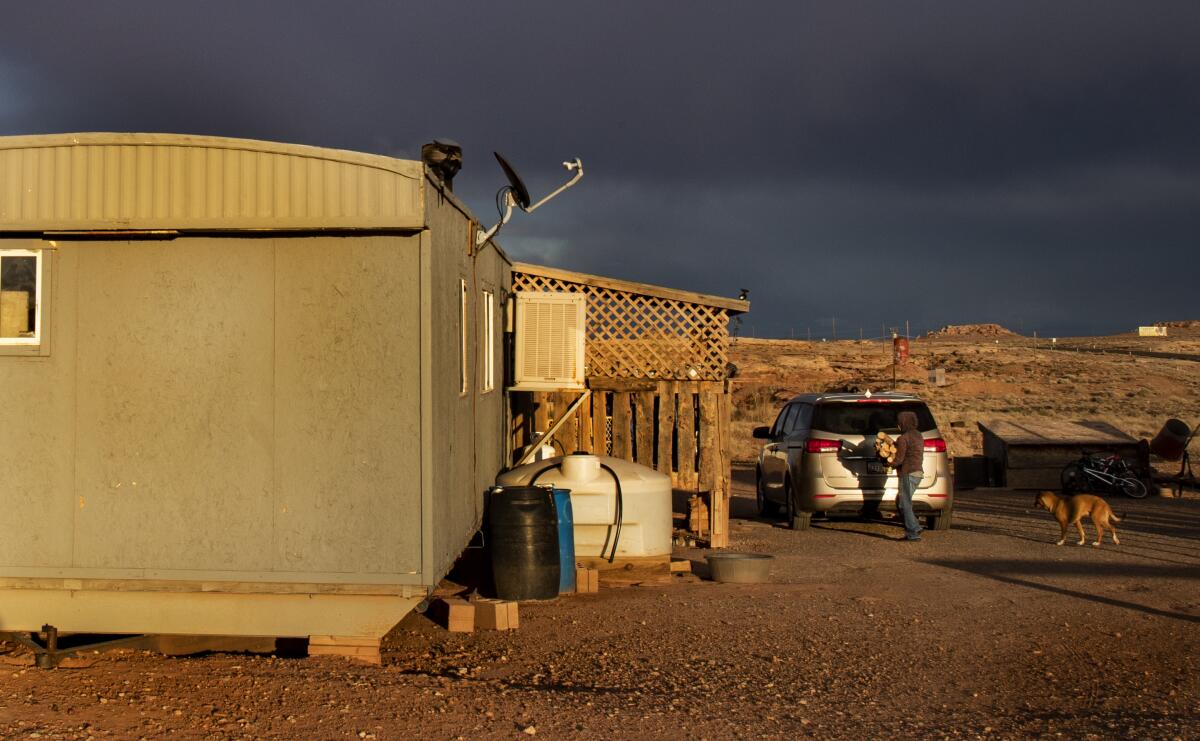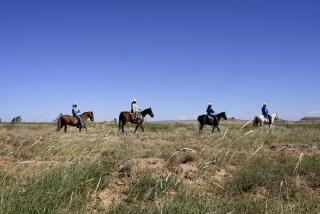Letters to the Editor: He’s from Indian Country. Now, he worries about COVID-19’s impact on his community

To the editor: I grew up in a small community on the western periphery of the Navajo reservation in northwest New Mexico. It is a small town with two major streets, one intersection and 3,000 people. (“No running water. No electricity. On Navajo Nation, coronavirus creates worry and confusion as cases surge,” March 29)
Growing up, my family did not have running water or electricity, and we traveled more than 60 miles each way for entertainment purposes and grocery shopping. Today, I am a graduate student in public health at the University of Arizona.
As I reflect on my hometown and childhood upbringing, I am worried about the health of Native Americans in my hometown and the many other communities like it across Indian Country during the coronavirus pandemic. Similar to the 2009 H1N1 outbreak, COVID-19 is going to expose the systemic inequalities and barriers to healthcare that Native American people face.
Indigenous scholars, healthcare workers, tribal officials and emergency response teams are working diligently to ensure the health and safety of community members, and their efforts are felt and recognized.
Darwyn Largo, Lawrence, Kan.
More to Read
A cure for the common opinion
Get thought-provoking perspectives with our weekly newsletter.
You may occasionally receive promotional content from the Los Angeles Times.










